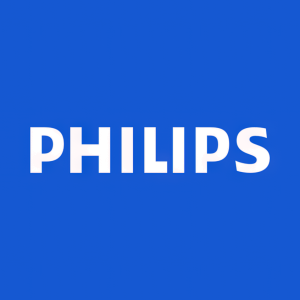Philips launches RADIQAL study to generate real-world evidence for new ultra-low X-ray dose technology in coronary procedures
Rhea-AI Summary
Philips (NYSE: PHG) has launched the RADIQAL (Radiation Dose and Image Quality Trial) study to evaluate its new ultra-low X-ray dose technology for coronary procedures. The multicenter trial will enroll 824 patients across 6 hospitals in Spain, Czech Republic, Denmark, and the US, with the first patient enrolled at Aarhus University Hospital, Denmark.
The study aims to compare radiation exposure, image quality, and procedural performance between Philips' new ultra-low dose technology and existing ClarityIQ technology, both integrated into the Azurion image-guided therapy system. The new technology features an ultra-low dose protocol that reduces X-ray exposure by 50% compared to the lowest setting currently available on Azurion systems with ClarityIQ. The technology has received CE marking but is not yet FDA-cleared.
Positive
- New technology reduces X-ray exposure by 50% compared to current lowest setting
- CE marking obtained under EU MDR regulatory framework
- Large-scale study with 824 patients across multiple countries
Negative
- Technology not yet FDA-cleared for use in US market
- US enrollment has not started
News Market Reaction – PHG
On the day this news was published, PHG gained 0.38%, reflecting a mild positive market reaction.
Data tracked by StockTitan Argus on the day of publication.
May 20, 2025
- Prospective, randomized, unblinded, comparative, international, multi-center clinical investigation
- 824 patients across 6 hospitals in Spain, Czech Republic, Denmark and the US
- Primary objective is to demonstrate that the new technology can reduce overall patient radiation dose without affecting coronary procedure performance.
Amsterdam, the Netherlands – Royal Philips (NYSE: PHG, AEX: PHIA), a global leader in health technology, today announced the launch of the RADIQAL (Radiation Dose and Image Quality Trial) trial. This multicenter, randomized study, sponsored by Philips will enroll 824 coronary artery disease patients across 6 hospitals in Spain, Czech Republic and the US. The first patient in the study was enrolled at Aarhus University Hospital, Denmark.
“The ability to reduce radiation exposure without compromising procedural performance is a key priority in interventional cardiology,” said Dr. Javier Escaned, Professor of Cardiology at Hospital Clínico San Carlos and principal investigator. “It is also important to achieve high-quality angiograms when using diluted contrast media as part of ultra-low contrast procedures. RADIQAL is designed to generate robust, real-world evidence on whether Philips’ new ultra-low X-ray dose technology can reduce radiation exposure for patients and staff without affecting the quality of coronary procedures.”
Coronary artery disease (CAD) is the most frequent type of heart disease affecting millions of people worldwide. It is caused by chronic inflammation of the coronary arteries, which may lead to a gradual obstruction or sudden occlusion of blood flow to the heart muscle. Percutaneous coronary intervention (PCI) is a widely used image-guided, minimally invasive procedure to open blocked coronary arteries and treat CAD. Philips Azurion is an image-guided therapy system which is used for live X-ray imaging during such procedures.
The RADIQAL trial evaluates radiation exposure, image quality and procedural performance between Philips’ new ultra-low dose technology and existing ClarityIQ technology, both integrated into the Azurion image-guided therapy system. The new technology features an ultra-low dose protocol for coronary procedures, reducing X-ray exposure by
“Reducing radiation exposure while maintaining or improving image-quality is one of the most important innovation goals in interventional cardiology,” said Dr. Darshan Doshi, Head of Medical & Clinical at Philips Image-Guided Therapy Devices and Interventional Cardiologist at the Massachusetts General Hospital in Boston, USA. “Interventional cardiologists rely on low-dose, high-quality imaging for confident decision-making throughout multiple procedures each day. Also for patients, especially those with high BMI or with complex conditions requiring repeat interventions, minimizing radiation exposure is increasingly critical.”
* Not cleared as a medical device in FDA-regulated countries. Enrollment in the US has not started.
For further information, please contact:
Joost Maltha
Philips Global External Relations
Tel.: +31 6 10 55 8116
E-Mail: joost.maltha@philips.com
About Royal Philips
Royal Philips (NYSE: PHG, AEX: PHIA) is a leading health technology company focused on improving people’s health and well-being through meaningful innovation. Philips’ patient- and people-centric innovation leverages advanced technology and deep clinical and consumer insights to deliver personal health solutions for consumers and professional health solutions for healthcare providers and their patients in the hospital and the home.
Headquartered in the Netherlands, the company is a leader in diagnostic imaging, ultrasound, image-guided therapy, monitoring and enterprise informatics, as well as in personal health. Philips generated 2024 sales of EUR 18 billion and employs approximately 67,200 employees with sales and services in more than 100 countries. News about Philips can be found at www.philips.com/newscenter.
Attachment








